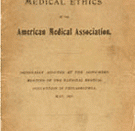Informed consent or doctor knows best?
In nowadays world, legal issues form an integral part of society when decisions need to be made. According to Johnstone (1995), the action role of legal support is done by reassuring the patients about their right and responsibility in making their own choices and also by reassuring them that they should not give themselves to pressure done by others in doing actions which are not wanted.
Informed consent in decision making has become an important aspect. In fact informed consent is when a person gives his agreement to a decision, like for example consent for an operation, but this must follow a good description of what will be done and how and the person must clearly understand well all issues before agreeing to give consent. Also, some acts legally cannot be carried out because of the lack of informed consent. (Wikipedia, 2007) When a person does not have the mental abilities to give consent, either because s/he is too young to understand the information or if the person is mentally ill, consent should be obtained from the next of kin on the person's behalf.
However informed consent has also some limits. According to O'Neill (2003), there are a lot of distinct conceptions of individual autonomy in informed consent. Consent is a propositional attitude and therefore complete specific consent is an illusion.
Some years earlier, according to Chin (2002), physicians have been allowed to interfere with patient's decisions with the objective of ensuring patient benefit and preventing harm. However with the influence of freedom and individual control, medical paternalism is no longer used as the dominant way of decision-making in health care. Nowadays, the principle of autonomy and self determination is the leading issue in health care, threatening in many instances the principle of medical...


